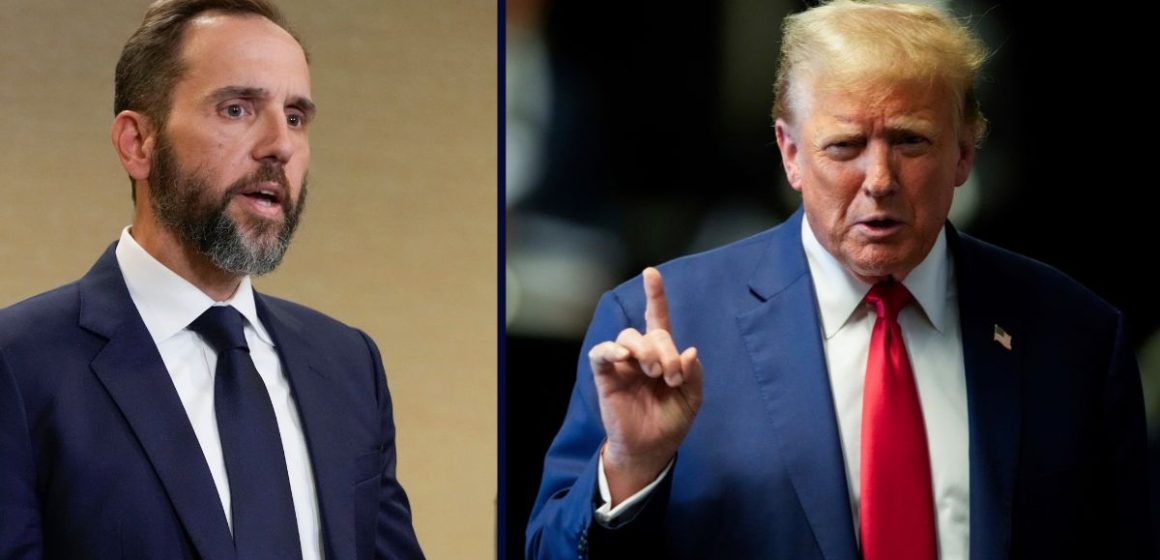The Biden administration is finally calling it quits in the Washington, D.C., criminal case against former and future President Donald Trump.
In a motion filed Friday morning, Jack Smith asked to vacate any and all briefing dates remaining on the docket’s schedule.
“As a result of the election held on November 5, 2024, the defendant is expected to be certified as President-elect on January 6, 2025, and inaugurated on January 20, 2025,” the unopposed motion to vacate reads. “The Government respectfully requests that the Court vacate the remaining deadlines in the pretrial schedule to afford the Government time to assess this unprecedented circumstance and determine the appropriate course going forward consistent with Department of Justice policy.”
Long-standing DOJ policy, of course, is that a sitting president cannot be indicted. Or, in Trump’s case, likely cannot remain indicted.
The specific state of affairs also inures to Trump as a prize of political expedience; apparently even a forthcoming president-elect will not remain under the albatross of criminal charges at the federal level.
This move by the special counsel’s office will tidily dispense of the Jan. 6 conspiracy case against Trump — forestalling any need for an incoming DOJ official to put the kibosh on the prosecutorial effort.
Smith asks for one last thing of the court — as a mere formality as the long-frustrated, but hugely influential, case finally and fully peters out.
“By December 2, 2024, the Government will file a status report or otherwise inform the Court of the result of its deliberations,” the motion continues. “The Government has consulted with defense counsel, who do not object to this request.”
In quick fashion, U.S. District Judge Tanya Chutkan granted the request. A Friday afternoon docket entry reads:
While the case is mostly dead letter, Smith’s crusade against Trump has yielded dividends for the concept of vast presidential power.
As a result of the way the Jan. 6 case against Trump was fashioned by the special counsel’s office, the U.S. Supreme Court would controversially create the concept of presidential immunity for criminal acts in the case stylized as Trump v. United States.
Authored by Chief Justice John Roberts, the landmark decision gave life to a doctrine specifically barring prosecutors from ever using a president’s “discussions with Justice Department officials” as chargeable conduct and granting “absolute immunity” for anything having to do with the president and the DOJ.
Additionally, the high court essayed a lesser form of presidential immunity that can, in theory, be defeated. When the president interacts with the vice president, such actions receive a do-not-prosecute presumption that works in favor of a defendant — but would, in practice, be hashed out on a case-by-case basis.
With Friday’s motion, and in line with the general trajectory of the case, Smith’s office has once again offered something not entirely unlike an even greater boon to the U.S. presidency as a unitary concept: even a pending criminal case against a former president won’t survive an outgoing administration’s lame duck period.
While the December hearing might portend an end to things, the special counsel does not have a precise term of office, so he could, however unlikely, choose not to resign. The end result, regardless, is a die cast by well over 73 million voters: Trump has vowed to fire Smith “within two seconds” on the day he takes office.
Have a tip we should know? [email protected]
Note: Thank you for visiting our website! We strive to keep you informed with the latest updates based on expected timelines, although please note that we are not affiliated with any official bodies. Our team is committed to ensuring accuracy and transparency in our reporting, verifying all information before publication. We aim to bring you reliable news, and if you have any questions or concerns about our content, feel free to reach out to us via email. We appreciate your trust and support!


